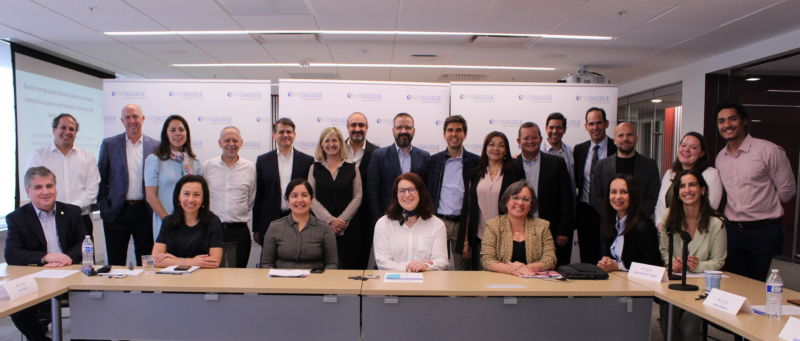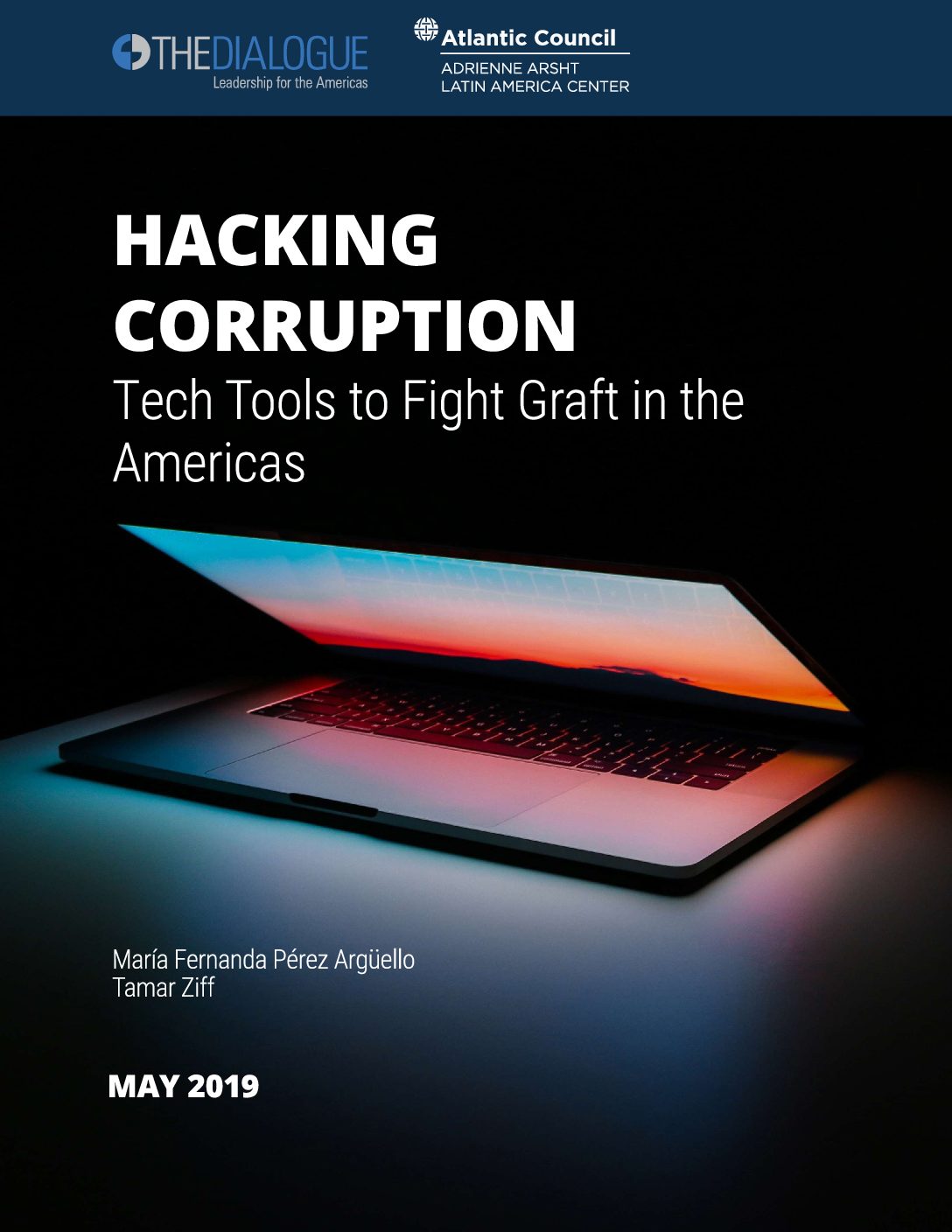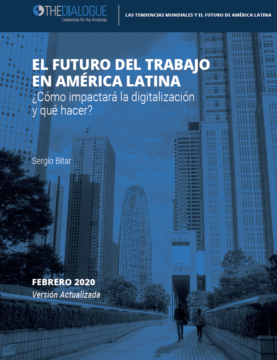Education Reform in Chile
The government has taken unprecedented steps to transform and improve the education system.
This post is also available in: Español
The Inter-American Dialogue and Microsoft, strategic allies on technology and education initiatives, convened the Working Group on Artificial Intelligence in Higher Education on April 18, 2024, to strengthen institutional capacities for developing AI adoption and implementation strategies in Latin American higher education institutions (HEIs).
This working group is one of the first of its kind in the world and a pioneer in articulating different actors involved in the agenda of Artificial Intelligence and education. The group is composed of representatives of prestigious higher education institutions in Latin American countries, including the Tecnológico de Monterrey in Mexico, Universidad de los Andes and UNIMINUTO in Colombia, ORT University of Uruguay, the Pontifical Catholic University of Chile, the University of Puerto Rico, and private actors involved in the AI and education agenda, such as Analytikus and GitHub.
Seeking to establish ethical frameworks that meet the needs of higher education institutions in Latin America, the first meeting's objectives were to present and document HEIs' experiences, review and discuss existing ethical frameworks, and define the key characteristics of ethical frameworks adapted to the Latin American regional context. The meeting also spurred opportunities for public-private dialogue, promoted a new multi-country platform, and defined the steps for future joint work.
"Coming together and understanding where everybody is in the AI adoption and implementation process is invaluable for Microsoft and our partners. Collaborative spaces like the one we saw today allow us to lean further to help higher education along their journey of AI adoption,” said Microsoft Education Director for the Americas, Bruce Thompson.
"Universities are key actors in the world regarding emerging AI technologies. They are the ones that form our future leaders and youth and surely shape all countries' business and commercial sectors. We must define how we want to approach AI technology and how it will shape the future of our countries. This is an ideal moment to have these conversations to define the frameworks for adopting AI in a responsible, ethical, transparent, and inclusive manner across Latin America,” added Jaime Galviz, Enterprise VP of Microsoft Latin America.
“As a new phenomenon with so much acceleration and interaction that is in many ways unprecedented, we require in-depth analyses about the nuances, biases, and complexities of AI technology that may not favor the inclusion we need so much. We need to work collaboratively to get closer to creating new ethical frameworks that put matters of inclusion and equality at the center of the discussion”, expressed Mariana Maggio, Microsoft's Director of Academic Programs for Latin America.
"We are very excited to see a willingness to work collectively,” Ariel Fiszbein, Director of the Education Program of the Inter-American Dialogue, said in closing. “[There is] a need to develop a strategy, a plan, that includes resources to implement and manage Artificial Intelligence in Latin American Universities in an ethical and equitable manner."
The universities welcomed the openness to dialogue and the creation of collaborative spaces to begin the process of adopting this technology in the sector. Ana Milena Lucumi Orostegui, vice president of professional and distance learning programs at the University of Puerto Rico, said: “The UPR, as a public university in Puerto Rico, needs to establish the state of the art of the innovative phenomenon of artificial intelligence. It is important for us to participate in this space because we are the trainers, the educators of the future entrepreneurs, doctors, and of the future of those who will serve the island and beyond."
During the meeting in Washington DC, the Inter-American Dialogue and Microsoft, with the support of Analytikus and GitHub, and the representatives of the universities present, called to work collaboratively to analyze the challenges and emerging learnings in pioneering AI projects in higher education in Latin America.
The government has taken unprecedented steps to transform and improve the education system.
A report analyzing the opportunities and challenges involved in utilizing new technologies to combat corruption in public procurement in Latin America.
Written by Sergio Bitar, this report from the Global Trends & Future of Latin America program explores various predictions for what new technology may do to the workforce over the next years, and how Latin America can prepare.
 Inter-American Dialogue and Microsoft
Inter-American Dialogue and Microsoft

